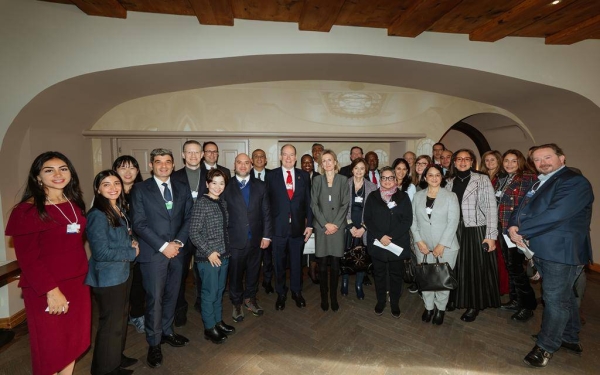
Turkey should engage with international groups, NATO and EU over needs of refugees, analyst tells Arab News
ANKARA: The Turkish government reacted angrily to claims made in the UK media about the prospective establishment of an offshore asylum processing center in Turkey, as a third country, for Afghan asylum-seekers.
The reports triggered a new debate about Turkey’s categorical rejection of responsibility for hosting more refugees after the Taliban’s takeover in Afghanistan.
“The news in the UK press saying there are plans to establish an asylum processing center for Afghan asylum-seekers in Turkey does not reflect the truth,” Turkey’s Foreign Ministry said in a written statement on Aug. 22.
“No official request has been conveyed to us from any country up until today. Should there be such a request, we would not accept it anyway,” it added.
Turkey also refused to receive the EU mission in Kabul’s local Afghan staff after they were evacuated from the country, with Ankara insisting Brussels does not assume enough responsibility over housing refugees.
Turkey already hosts over 4 million Syrian refugees, with Afghans the second largest refugee community in the country.
According to the official figures from the end of 2020, before the beginning of the US withdrawal process, there were 116,000 Afghan asylum-seekers and 980 Afghan refugees residing in Turkey.
The controversy was triggered by an article written by British Defense Secretary Ben Wallace in the Mail On Sunday, saying: “A series of ‘processing hubs’ will be set up in countries neighboring Afghanistan for refugees who manage to escape. If they can establish their right to come to the UK, they will be flown to Britain.”
Turkey established new reinforcements to its eastern border with Iran with a high-tech wall in order to boost its border security against new flows of Afghan migrants.
Cigdem Nas
The article did not mention Turkey by name as a prospective host country, but the Guardian newspaper also claimed that “the names of countries had been briefed out by UK officials as examples of where processing centers might be established.” Turkey and Pakistan are thought to be among the countries in question.
On Sunday, Turkish President Recep Tayyip Erdogan also told European Council President Charles Michel that Turkey could not assume the responsibilities of European countries regarding Afghan refugees.
The UK recently agreed to host 20,000 Afghan refugees, with 5,000 coming in the first year.
“There are major problems in terms of the integration capacity of the society both due to the upsurge in the number of migrants and refugees over a comparatively short period of time, lack of an overall migrant integration strategy, and economic and social problems which lead a considerable portion of the population to question the open-door policy toward refugees,” Cigdem Nas, secretary-general of the Economic Development Foundation of Turkey, told Arab News.
According to Nas, these conditions impede decision-makers and make it politically costly to adopt a humanitarian, open-door approach.
“Turkey should engage with international organizations, NATO partners and the EU in order to organize for the immediate needs of refugees that arrive in Turkey and facilitate their resettlement in developed countries,” she said.
“Turkey established new reinforcements to its eastern border with Iran with a high-tech wall in order to boost its border security against new flows of Afghan migrants.
“In addition, since Afghan refugees are arriving along the route through Iran, coordination and co-regulation with neighboring countries is also vital,” Nas said, and suggested the establishment of an eastern Mediterranean pact over security and refugee issues.
Whether this new refugee inflow could trigger a new refugee deal between Ankara and Brussels including integration-focused projects remains to be seen, with Turkish authorities repeatedly insisting that the country cannot host more refugees, and the political costs of keeping those already in Turkey rising. According to Nas, additional funds will not be sufficient for the government to accept a high number of refugees from Afghanistan, because those fleeing will not be part of a temporary migration.
“As we have observed in the case of Syrian refugees, at least 80 percent continue to stay in the host country,” she said. “European countries are no longer open to accepting refugees in greater numbers, meaning that those refugees that are able to come to Turkey will find it more difficult to make a transit toward further west and stay permanently in Turkey.
“With the high unemployment percentage and difficult economic conditions, the existence of a higher number of refugees becomes more and more politically costly for any government,” she said.
Erdogan said on Monday that intensive international diplomacy on Afghanistan was being conducted “to ensure stability in the region and to protect Turkey against the pressure of migration.”
Zalmai Nishat, research fellow at the Asia Center at the University of Sussex, however, said claims in the British media should be understood in a wider context.
“Britain, among other countries, is engaged in evacuating large number of citizens of Afghanistan who used to work for them in the past 20 years,” he told Arab News.
“Later it included ‘vulnerable people’ in that category, for those who worked in civil society, media and government, who might be at risk of persecution by the Taliban regime.
“To quickly evacuate the targeted population, they might need assistance of ‘third’ countries for processing purposes, not as a permanent place for the refugees,” he added.
Nishat underlined that, as a similar case, the US was using facilities in Qatar to process those who will be then resettled in the country; and now the UK might need the assistance of Turkey to process those who are going to be resettled in Britain.
Secondly, Nishat added, as Turkey signed a deal with the EU in 2016 to halt the refugee flow into the EU countries, including those from Afghanistan, Turkey started deporting thousands back to Afghanistan without any moral responsibility toward their future.
“This policy has been unsustainable. Turkey needs to find a regional solution with the help and assistance of the EU, UN agencies and regional countries,” he said.












